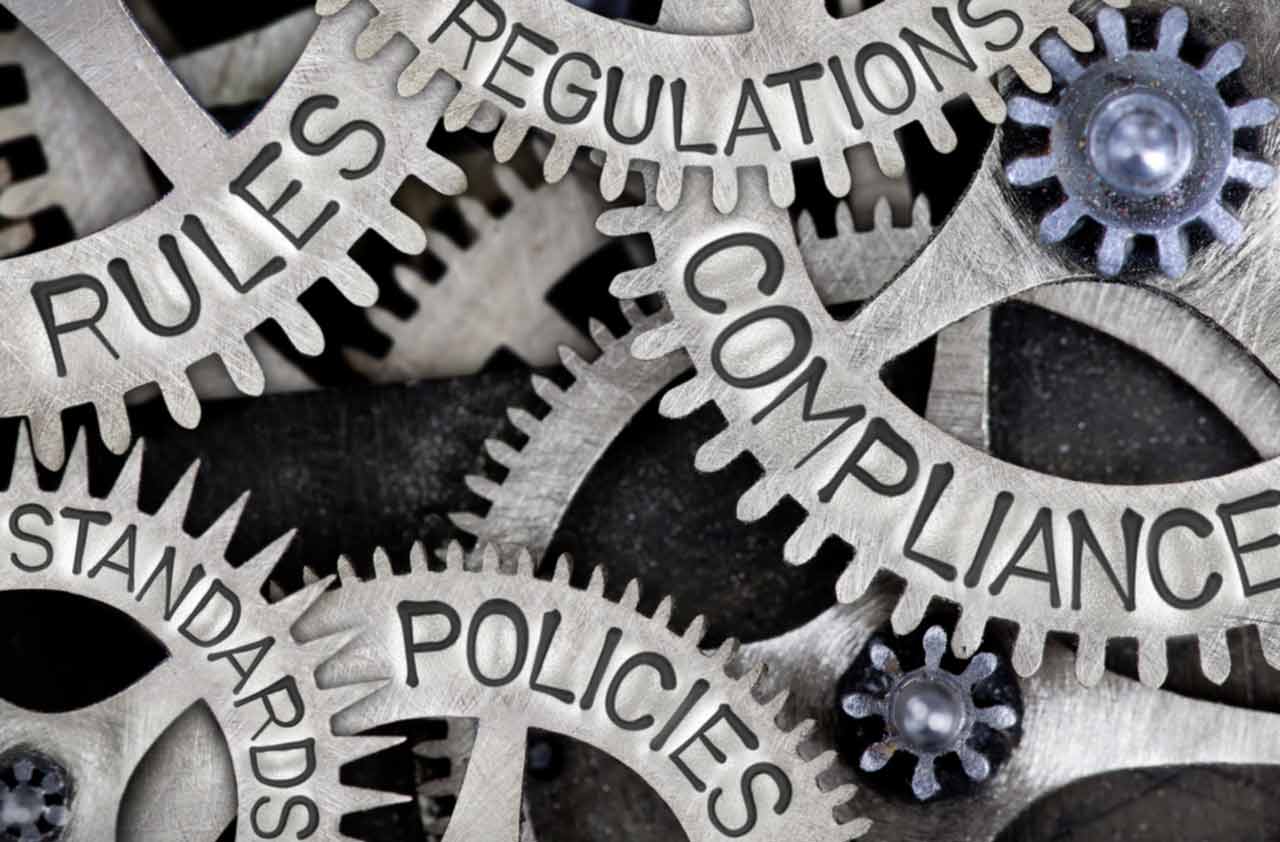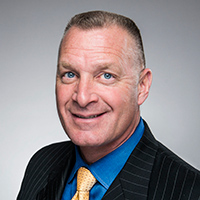I'm a Fiduciary, But I Don't Like the Fiduciary Rule
The rule, which aims to curb conflicts of interest for those who give financial advice, could mean some small clients and advisers could get squeezed out.


Profit and prosper with the best of Kiplinger's advice on investing, taxes, retirement, personal finance and much more. Delivered daily. Enter your email in the box and click Sign Me Up.
You are now subscribed
Your newsletter sign-up was successful
Want to add more newsletters?

Delivered daily
Kiplinger Today
Profit and prosper with the best of Kiplinger's advice on investing, taxes, retirement, personal finance and much more delivered daily. Smart money moves start here.

Sent five days a week
Kiplinger A Step Ahead
Get practical help to make better financial decisions in your everyday life, from spending to savings on top deals.

Delivered daily
Kiplinger Closing Bell
Get today's biggest financial and investing headlines delivered to your inbox every day the U.S. stock market is open.

Sent twice a week
Kiplinger Adviser Intel
Financial pros across the country share best practices and fresh tactics to preserve and grow your wealth.

Delivered weekly
Kiplinger Tax Tips
Trim your federal and state tax bills with practical tax-planning and tax-cutting strategies.

Sent twice a week
Kiplinger Retirement Tips
Your twice-a-week guide to planning and enjoying a financially secure and richly rewarding retirement

Sent bimonthly.
Kiplinger Adviser Angle
Insights for advisers, wealth managers and other financial professionals.

Sent twice a week
Kiplinger Investing Weekly
Your twice-a-week roundup of promising stocks, funds, companies and industries you should consider, ones you should avoid, and why.

Sent weekly for six weeks
Kiplinger Invest for Retirement
Your step-by-step six-part series on how to invest for retirement, from devising a successful strategy to exactly which investments to choose.
I’m a fiduciary, and proud of it. I like that my clients know I always put their best interests first when I’m working with their hard-earned money, and I take that responsibility seriously.
Still, I can’t say I’m happy that the Department of Labor’s long-delayed fiduciary rule finally went into effect on June 9, a little over two months after President Trump delayed its implementation for more study.
The rule emphasizes eliminating conflicts of interest among financial professionals. Until now, some financial professionals, such as brokers, were required to act under only a suitability standard. The products they recommended needed only to be “suitable” to the client’s goals and objectives given their current situation, meaning that it was OK to recommend products that were suitable but that came with higher fees or expenses – from which the adviser could earn some extra money. Now, under the fiduciary rule, the advice they give for your retirement accounts is required to be in your best interest, not their own.
From just $107.88 $24.99 for Kiplinger Personal Finance
Become a smarter, better informed investor. Subscribe from just $107.88 $24.99, plus get up to 4 Special Issues

Sign up for Kiplinger’s Free Newsletters
Profit and prosper with the best of expert advice on investing, taxes, retirement, personal finance and more - straight to your e-mail.
Profit and prosper with the best of expert advice - straight to your e-mail.
One thing to keep in mind: The rule applies only to your retirement accounts: those funded with pre-tax dollars, such as your IRA and 401(k), but not individual brokerage accounts.
Problems from the Start
If you’re not sure what standard your financial professional is working under, ask. But there have been problems from the start with the way the rule came to be, the way companies are executing it and what it means to consumers.
That the regulation was delivered by a federal agency and pushed by the past administration, circumventing Congress’ opposition, is troubling.
It isn’t as though the problems the rule addresses haven’t been on Congress’ radar. Alternatives had already been proposed. And it’s possible there would be fewer objections if the changes had gone through the proper channels.
The financial services industry opposed the DOL rule from the beginning — arguing that it would make retirement planning too expensive for middle- and lower-income individuals seeking professional guidance. And yet, in fits and starts, the rule moved toward reality, and the industry began changing to deal with it. Large and small firms started reinventing themselves and how they do business.
Small Clients Being Squeezed Out
Already, we’ve seen companies raising their minimums; if you don’t have enough in your portfolio to make it worth the work, and you’re not paying those commissions and fees anymore, you may have a difficult time finding a good financial professional. Existing clients could have to look elsewhere for help, and new clients may have to go where their account size is welcomed or become do-it-yourselfers.
The level of advice an individual receives should not be based on the size of their retirement portfolio. And DIYers will be facing a market due for a correction. They could ruin their retirement if they don’t get it right.
And now that the rule has come to pass, I think firms will use it as a marketing angle. They’ll say, “We’ve been waiting for this, and we’re ready.” But they won’t be there for everyone.
Pressure on Financial Professionals
And every adviser won’t be around, either. New costs, compliance obligations and other issues associated with the rule will force some financial professionals out of business. And a lot of older, experienced financial professionals may decide to retire rather than deal with the educational requirements, not to mention the thought of what could happen if a client decides they should have done better and takes the case to court.
So you’ll see options disappearing for lower-income individuals, but also any individual who simply prefers working with the financial professional they’ve always had, in the manner they’ve grown used to.
My Final Take on the Fiduciary Rule
I’ve been a fiduciary for more than 20 years, and I think it’s the best way to conduct business. But there are problems with the DOL rule that I believe need fixing.
As President Trump said in his Feb. 3 memorandum ordering a review of the rule, further analysis is in order.
Profit and prosper with the best of Kiplinger's advice on investing, taxes, retirement, personal finance and much more. Delivered daily. Enter your email in the box and click Sign Me Up.

Christopher A. Murray is a professional financial adviser, insurance professional and president of the Maryland-based Murray Financial Group. He is a Certified Fund Specialist, Board Certified in Mutual Funds and a Certified Senior Consultant. Murray has produced and hosted the weekly "Your Financial Editor" radio show for 17 years and provides daily business and financial market updates. He is an active member of the National Press Club and has contributed to several publications, including "The Wall Street Journal."
-
 Nasdaq Leads a Rocky Risk-On Rally: Stock Market Today
Nasdaq Leads a Rocky Risk-On Rally: Stock Market TodayAnother worrying bout of late-session weakness couldn't take down the main equity indexes on Wednesday.
-
 Quiz: Do You Know How to Avoid the "Medigap Trap?"
Quiz: Do You Know How to Avoid the "Medigap Trap?"Quiz Test your basic knowledge of the "Medigap Trap" in our quick quiz.
-
 5 Top Tax-Efficient Mutual Funds for Smarter Investing
5 Top Tax-Efficient Mutual Funds for Smarter InvestingMutual funds are many things, but "tax-friendly" usually isn't one of them. These are the exceptions.
-
 Social Security Break-Even Math Is Helpful, But Don't Let It Dictate When You'll File
Social Security Break-Even Math Is Helpful, But Don't Let It Dictate When You'll FileYour Social Security break-even age tells you how long you'd need to live for delaying to pay off, but shouldn't be the sole basis for deciding when to claim.
-
 I'm an Opportunity Zone Pro: This Is How to Deliver Roth-Like Tax-Free Growth (Without Contribution Limits)
I'm an Opportunity Zone Pro: This Is How to Deliver Roth-Like Tax-Free Growth (Without Contribution Limits)Investors who combine Roth IRAs, the gold standard of tax-free savings, with qualified opportunity funds could enjoy decades of tax-free growth.
-
 One of the Most Powerful Wealth-Building Moves a Woman Can Make: A Midcareer Pivot
One of the Most Powerful Wealth-Building Moves a Woman Can Make: A Midcareer PivotIf it feels like you can't sustain what you're doing for the next 20 years, it's time for an honest look at what's draining you and what energizes you.
-
 I'm a Wealth Adviser Obsessed With Mahjong: Here Are 8 Ways It Can Teach Us How to Manage Our Money
I'm a Wealth Adviser Obsessed With Mahjong: Here Are 8 Ways It Can Teach Us How to Manage Our MoneyThis increasingly popular Chinese game can teach us not only how to help manage our money but also how important it is to connect with other people.
-
 Looking for a Financial Book That Won't Put Your Young Adult to Sleep? This One Makes 'Cents'
Looking for a Financial Book That Won't Put Your Young Adult to Sleep? This One Makes 'Cents'"Wealth Your Way" by Cosmo DeStefano offers a highly accessible guide for young adults and their parents on building wealth through simple, consistent habits.
-
 Global Uncertainty Has Investors Running Scared: This Is How Advisers Can Reassure Them
Global Uncertainty Has Investors Running Scared: This Is How Advisers Can Reassure ThemHow can advisers reassure clients nervous about their plans in an increasingly complex and rapidly changing world? This conversational framework provides the key.
-
 I'm a Real Estate Investing Pro: This Is How to Use 1031 Exchanges to Scale Up Your Real Estate Empire
I'm a Real Estate Investing Pro: This Is How to Use 1031 Exchanges to Scale Up Your Real Estate EmpireSmall rental properties can be excellent investments, but you can use 1031 exchanges to transition to commercial real estate for bigger wealth-building.
-
 The 8 Stages of Retirement: An Expert Guide to Confidence, Flexibility and Fulfillment, From a Financial Planner
The 8 Stages of Retirement: An Expert Guide to Confidence, Flexibility and Fulfillment, From a Financial PlannerRetirement planning is less about hitting a "magic number" and more about an intentional journey — from understanding your relationship with money to preparing for your final legacy.